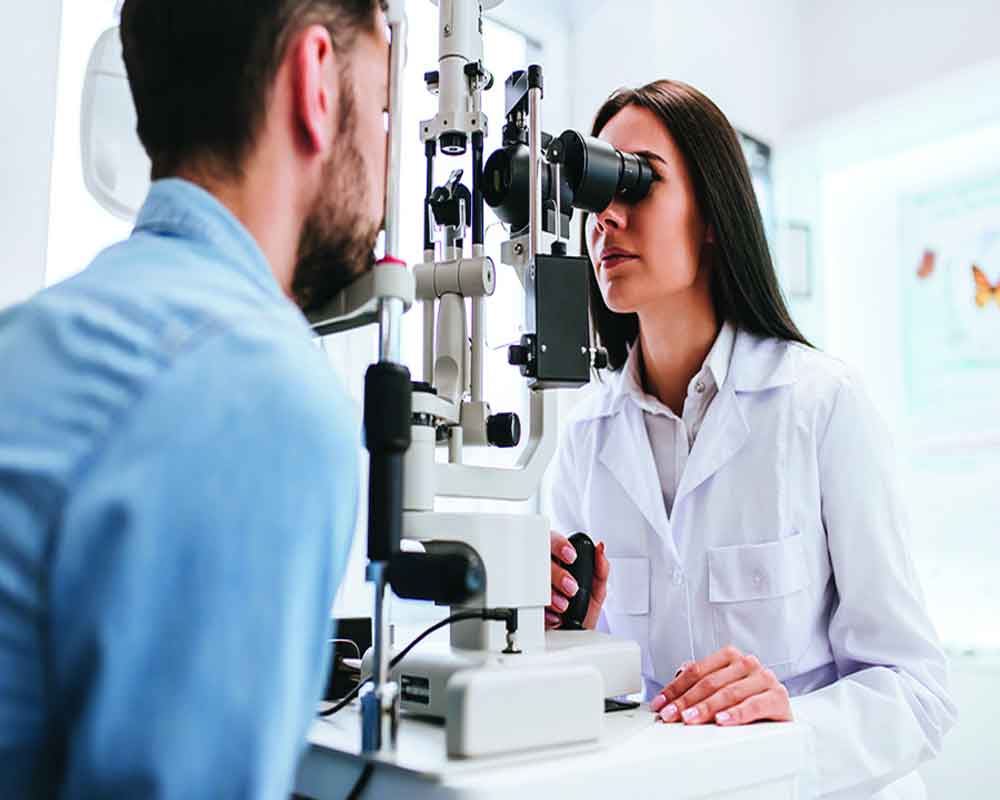According to the World Health Organisation, glaucoma is the second leading cause of blindness in the world. There are plenty of misconceptions surrounding the disease that can leave patients misinformed, says DR SHEFALI PARIKH
In India, glaucoma is the leading cause of irreversible blindness with nearly 12 million people affected and nearly 1.2 million people blind from the disease. According to the World Health Organisation (WHO), glaucoma is the second leading cause of blindness in the world. Glaucoma can affect people of every age however, the risk of the disease increases with age. Glaucoma happens to be a common eye condition that affects the optic nerves of the eyes. These optic nerves are responsible for carrying information from the eye to the brain to get it processed. Thus, when the optic nerves get damaged, it leads to vision loss, and in severe cases, irreversible vision impairment. Unfortunately, there are plenty of misconceptions surrounding the disease that can leave patients misinformed.
5 of the most common glaucoma myths
Glaucoma only affects the elderly
While it is certainly true that people above the age of 60 have greater chances of developing glaucoma as compared to people in their 40s, it can also affect people aged 20-50 as well as infants. For instance, some babies can have glaucoma by birth (called congenital glaucoma), while other children have other eye diseases that lead to secondary glaucoma.
The same is true for adults—one can have an eye condition, for example, uveitis, diabetes which results in secondary glaucoma. Other types of glaucoma can often manifest in patients between ages 20 and 50 like pigmentary glaucoma.
Symptoms are visible during the early onset of glaucoma
Open-angle glaucoma, which is the most common form of glaucoma, doesn't exhibit any signs or symptoms until the later stages when vision loss sets in. Even though people may think that the increased eye pressure causes pain, it doesn't. Also, as peripheral vision is generally first compromised very slowly, one may not recognize vision loss until the vision has become significantly impaired. The only way to detect glaucoma is to undergo a comprehensive eye exam.
Glaucoma can’t be prevented
Routine and regular eye exams can certainly aid in the prevention of glaucoma related blindness. While it is true that vision loss due to glaucoma can’t be reversed, having regular eye exams by an ophthalmologist that include measurements of the eye pressure can certainly go a long way in preventing blindness due to disease. According to the Glaucoma Experts, it is important to have an exam every two years beginning at age 40 if there are no glaucoma risk factors, and every one year if one is at high risk or over 65.
Glaucoma testing can be painful
Testing for glaucoma is not at all painful. There are different types of tests for glaucoma. There's also a test known as Goldman applanation tonometry where patients receive a painless eye drop in each eye. The ophthalmologist then directs a blue light onto each eye and looks into an instrument that precisely measures intraocular pressure. This test is also quick and painless. Angle assessment with lenses called goniolens is very important to differentiate between two most common glaucoma prevalent in Indian scenarios. Other tests include testing of visual field with perimeter, and scanning of the optic nerve with imaging technology.
Glaucoma is inherited
Certain types of glaucoma are hereditary, and a family history of glaucoma is a risk factor no doubt. But there are many glaucoma patients who are the only ones in their families who are diagnosed with the disease.
It is also possible that there does not appear to be a strong family history because not every family member has been appropriately examined. Thus, it is important that patients with glaucoma should share their diagnosis with their family members and ask them to have a dilated eye examination.
Stop believing in the myths surrounding glaucoma and work with your eye doctor to preserve and protect your eye health. Glaucoma cannot be cured but definitely the blindness due to glaucoma can be prevented if early diagnosis.
The writer is Dr Shefali Parikh, Glaucoma Specialist at Shreeji Eye Clinic, Andheri, Mumbai


























